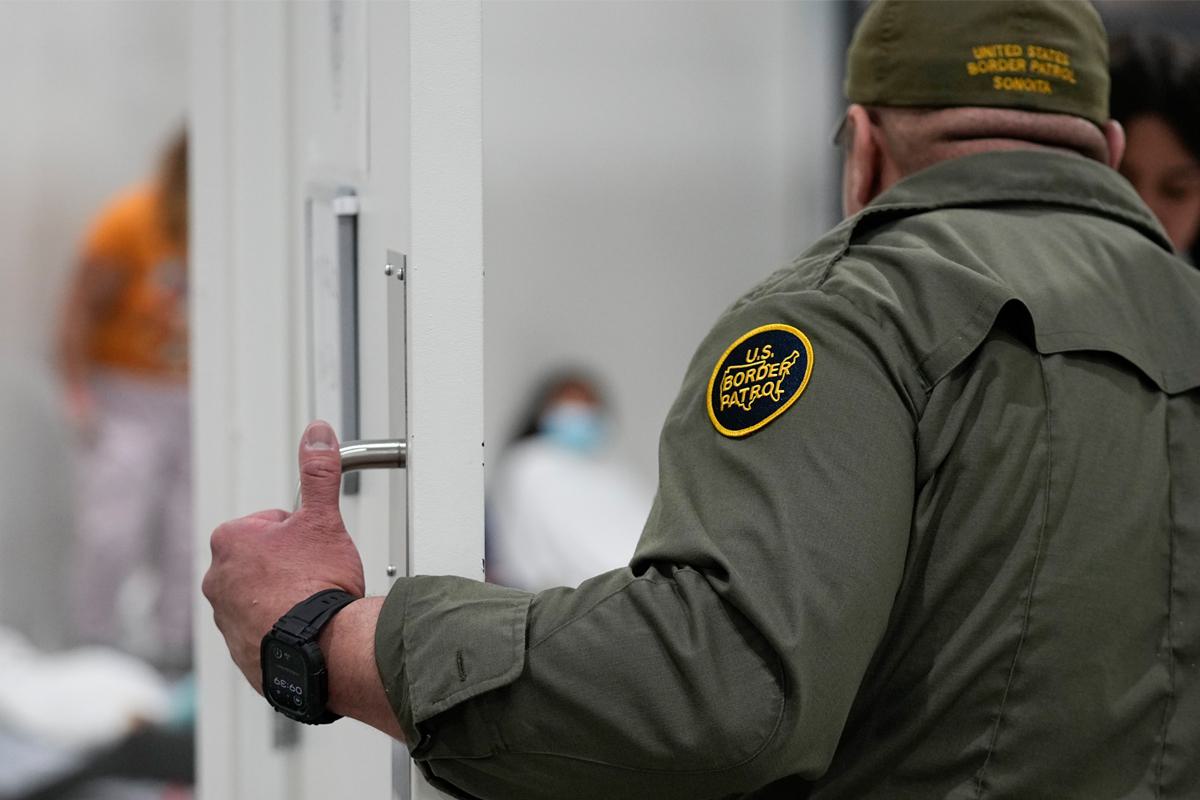The Biden administration’s weak border policy has Border Patrol agents working around the clock to protect U.S. citizens. From May 2023 to December 31, 2023, the Department of Homeland Security removed or returned over 472,000 individuals, most of whom came across the nation’s southern border.
Alan Regalado, the public affairs specialist for U.S. Customs and Border Protection (CBP) told 1819 News processing such a large number of individuals has been overwhelming. He said the answer to the problem starts at polling places.
“It’s very challenging, but we just have to keep adjusting and trying to learn things,” Regalado said. “We are human, so as we grow, we make adjustments and learn things.”
Border Patrol makes contact with illegal immigrants after they are suspected of committing a crime. Regalado said it is difficult to be proactive because agents can be accused of racial profiling. Therefore, stopping anyone and requesting immigration status is not an option.
After an immigrant is suspected of a crime, they are processed through Border Patrol.
Authorities make contact with the person and do health checks first. The second step is to process the person with biometrics, including fingerprints and photos. That information is placed into a system, and a background check is performed.
Regalado said as more arrests are made due to the situation at the border, Border Patrol has to adjust, but he said the criminals are also making adjustments and adding more challenges to an already overwhelmed system.
“It’s concerning in so many different ways because that’s the whole reason there is an immigration system in place,” Regalado added. “We want to be able to identify who is coming into our country because we don’t know who they are. They could be criminals or people trying to come here to work and provide for their families.”
Within 24 hours of making contact with individuals, Border Patrol transfers the responsibility to U.S. Customs and Immigration Enforcement (ICE). ICE then determines the next step.
The Biden administration’s policy allows immigrants to be given a document showing they have already been processed and they are given a court date. An overwhelmed court system often means the court date is two to three years after the initial contract. In the meantime, Regalado said they still do not have any legal status and must wait.
“If they run into authorities, then they can show hey, ‘yes, I am illegal, but I have been processed, and here is my document,” Regalado explained.
Other ICE officials say many immigrants never show up for their court dates.
In Alabama, immigration officials believe some of those awaiting a court date will find work in the state, but many are not staying in the state. Regalado believes Alabama will see more transients passing through the state to get to work in other states.
Several systems allow migrants to gain employment while they await their court date. However, Regalado added that with the influx of migrants comes an influx in criminal organizations. And that’s when the migrants and the public can be put into dangerous situations.
“Smuggling organizations take advantage of their vulnerability and their desire to come here and give them false hope and lie to them,” he said. “Criminal organizations smuggle their members into the United States to cause harm and to run their organizations in the United States. It has gotten harder in the last several years to fight this. It’s kind of like a cat and mouse game.”
Regalado said it is essential to educate the public on what is happening in their backyards and how the immigration process works.
“At the end of the day, it comes down to votes and who leads our country,” Regalado said. “It’s really hard to understand it unless you’re living in a state that’s seeing this.”
“CBP continues to use all available resources to ensure the safety and security of our agents and officers and the migrants who are often misled and victimized by the transnational criminal organizations,” said Troy A. Miller, a senior official performing the duties of the Commissioner for CBP. “But as we have repeatedly said, CBP and our federal partners need additional support from Congress so that we can continue to effectuate consequences for those who do not use established lawful pathways.”
CBP said the message to anyone who is considering coming to the United States illegally is “don’t do it.”
To connect with the author of this story or to comment, email erica.thomas@1819news.com.
Don’t miss out! Subscribe to our newsletter and get our top stories every weekday morning.










